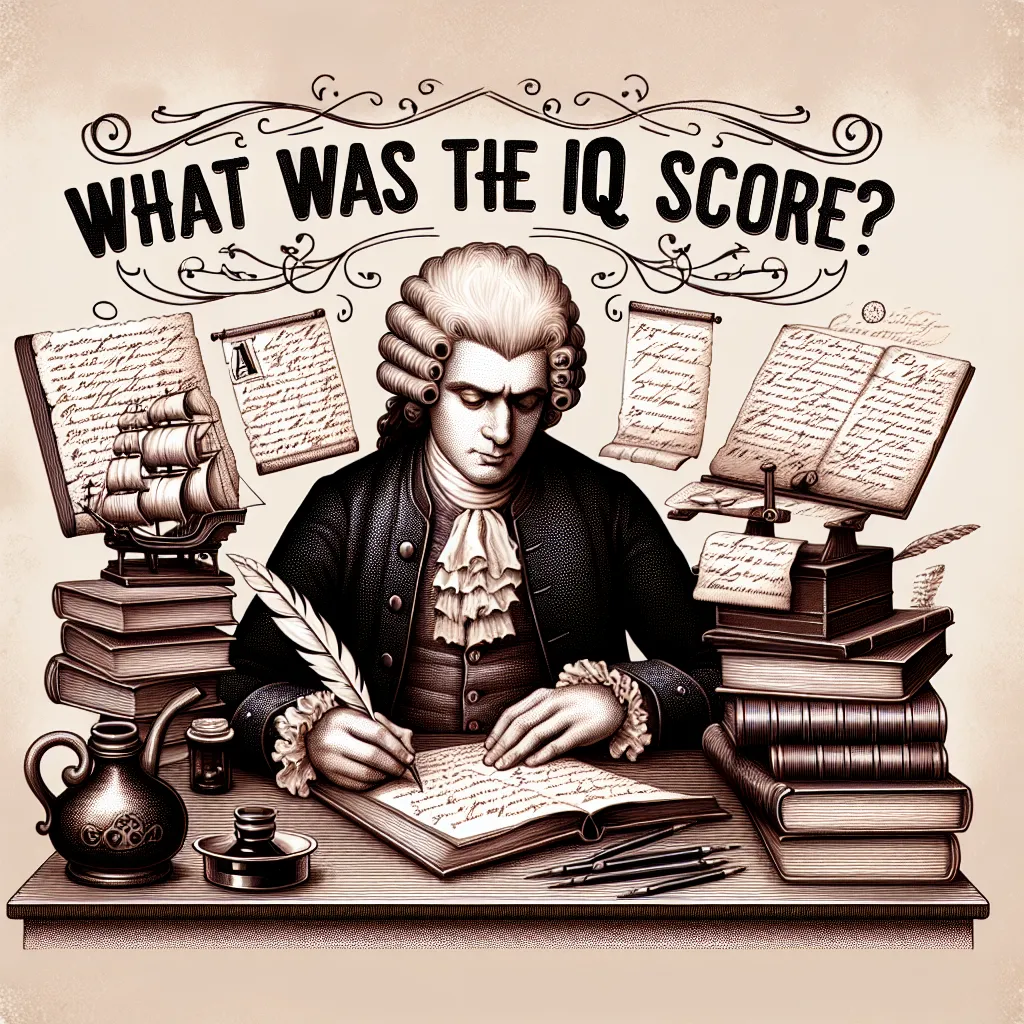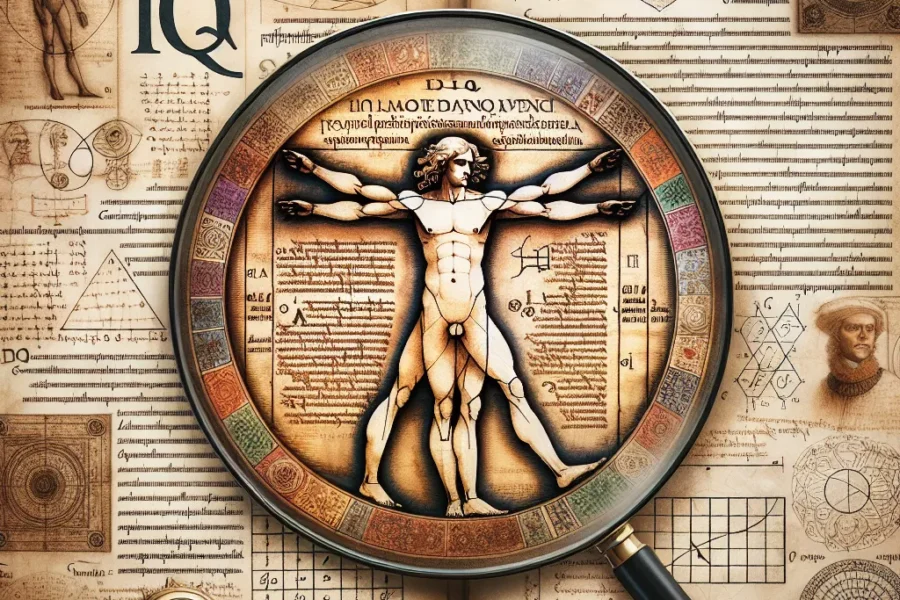Voltaire, born François-Marie Arouet in 1694, was one of the most influential writers, philosophers, and critics of his time. Celebrated for his wit, intelligence, and biting critique of the establishment, Voltaire remains a central figure in the history of European thought. However, a question that is often posed about such intellectual giants is, “What was Voltaire’s IQ score?” Surprisingly, assigning an exact IQ score to Voltaire, like other historical figures, is a complex endeavor. This blog post aims to delve deep into the life, achievements, and intellectual prowess of Voltaire, whether an IQ score can effectively measure such genius, and the broader implications of attaching modern metrics to historical intellects.
If you are looking for legitimate IQ Tests which pass the entry bar for Mensa, see our IQ Tests.
### The Origins and Evolution of IQ Testing
Before we attempt to speculate on Voltaire’s potential IQ, it’s crucial to understand what IQ tests are and their limitations. The concept of the Intelligence Quotient was developed by Alfred Binet and Théodore Simon in the early 20th century, long after Voltaire’s time. IQ tests aim to measure a person’s cognitive abilities or intelligence relative to others. They include various components such as logical reasoning, mathematical skills, language abilities, spatial recognition, and more.
However, it is broadly agreed that IQ is not a definitive measure of one’s intellectual capabilities, particularly when assessing historical figures. The tools, standards, and methodologies used are rooted in contemporary scientific understandings and cultural biases, making them an imperfect lens for evaluating past geniuses.
### Voltaire: A Brief Overview of His Life and Achievements
Voltaire was born into a reasonably affluent family in Paris, France. Raised in an environment where literature and intellect were valued, he quickly showcased an aptitude for writing and thinking critically. His education at the Jesuit Lycée Louis-le-Grand and subsequent tutelage under other scholars honed his skills, establishing him as a figure to be reckoned with by the time he started publishing his works.
Among Voltaire’s multiple contributions, his satirical novella “Candide” is perhaps the most well-known. It is a sharp critique of the optimism prevalent during his time, showcasing his ability to combine wit with profound philosophical questions. His other significant works include “Letters Concerning the English Nation,” “Éléments de la philosophie de Newton,” and “Dictionnaire philosophique,” each contributing to various domains such as literature, philosophy, and science.
### The Problem of Quantifying Historical Genius
Assigning an IQ score to a mind like Voltaire’s is more speculation than science. IQ tests were not available during his lifetime, and even if they were, the cultural and historical contexts would have rendered any direct comparison problematic. Additionally, cognitive capabilities extend far beyond what standardized tests can measure. Creativity, wisdom, moral reasoning, and emotional intelligence are equally critical and often overshadow pure analytical or mathematical prowess.
That said, if one were to hypothesize, one might argue that Voltaire exhibited traits commonly associated with high IQ individuals: exceptional problem-solving abilities, quick learning skills, critical and analytical thinking, and a rich and varied vocabulary. These indications might lead some to speculate that his IQ could easily be in an upper percentile, potentially in the range of 160 or above – a range reserved for profoundly gifted individuals.
### Voltaire’s Intellectual Legacy and Its Modern Interpretations
Voltaire’s intellectual contributions extend beyond his written works. He was a crucial advocate for civil liberties, freedom of speech, and the separation of church and state. He sparred with prominent figures of his time through his writings, often facing persecution and imprisonment. Yet, he remained undeterred, understanding the significance of free thought in the enlightenment of society.
Today, Voltaire’s ideas continue to echo in discussions about civil rights and intellectual freedom. His ability to criticize and question authority without fear has set a benchmark for modern thinkers and critics. Modern interpretations of his works often analyze his rhetorical methods and philosophical inquiries, emphasizing that intelligence is as much about questioning and rethinking as it is about knowing.
### Why IQ is Not the Ultimate Measure of Intelligence
For those keen on using IQ as a yardstick for intelligence, understanding its limitations is crucial. IQ tests measure specific types of cognitive functions but do not encapsulate the totality of the human intellect. Aspects like long-term memory, creativity, and practical ingenuity often lie beyond its scope. In Voltaire’s case, his wit and ability to navigate social, political, and philosophical arenas signal an intellectual capability that would be hard to quantify through mere numbers.
Additionally, the biases embedded in IQ testing methodologies can skew results. Cultural, linguistic, socio-economic, and educational factors play a significant role in one’s performance on such tests. A standardized test developed centuries later, for a different population, can hardly do justice to Voltaire’s unique genius.
### The Broader Question: Should We Even Try to Quantify Historical Intellect?
Assigning IQ scores to historical figures might quench some intellectual curiosities, but it often oversimplifies and underrepresents the breadth of their intellect. Minds like Voltaire’s are better appreciated through their works, influence, and the legacies they have left behind. He was a dynamic figure whose contributions cannot be confined to a single numerical value.
Voltaire’s extensive body of work reveals an undeniable depth of thought and intellectual versatility. He masterfully navigated multiple languages, philosophies, and sciences, influencing not only his contemporaries but also future generations. This multi-dimensional intelligence underscores why many historians and philosophers advocate against trying to pin a precise IQ score on such individuals.
### The Enduring Relevance of Voltaire’s Thinking in the Modern World
As we navigate through an era brimming with information and disinformation, Voltaire’s skepticism and commitment to truth stand out as vital intellectual tools. His works inspire rigorous thinking, questioning received wisdom, and advocating for human rights. These aspects provide a more holistic understanding of his intelligence, far richer than any IQ score could convey.
In an age where AI and data analytics increasingly influence decision-making, the philosophical and ethical dimensions that figures like Voltaire offer remain indispensable. They remind us that intelligence must also engage with humanity, justice, and moral reflection.
### Conclusion: The Measure of a Genius
To sum up, attempting to identify Voltaire’s IQ score is an enticing but ultimately speculative exercise. His contributions to literature, philosophy, and advocacy for civil liberties reveal a form of intelligence that transcends numerical measures. While IQ tests provide valuable insights into specific cognitive abilities, they fall short of capturing the full spectrum of human intellect and creativity – areas where Voltaire undoubtedly excelled.
Thus, while an exact IQ score for Voltaire remains elusive and somewhat irrelevant, his enduring legacy continues to illuminate what true genius entails – a multi-faceted blend of analytical prowess, creative expression, moral courage, and relentless pursuit of truth. By appreciating these aspects, we can better understand and celebrate the rich, complex intelligence of one of history’s most brilliant minds.



Leave a Comment